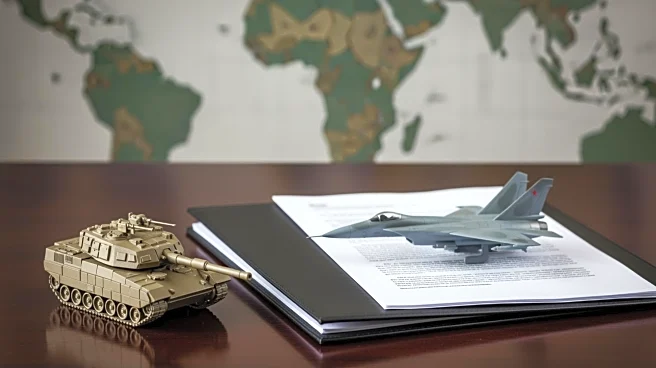What's Happening?
The Pentagon has approved a $330 million military sale to Taiwan, marking the first such transaction under President Trump. This decision comes amid strong objections from China, which views Taiwan as part
of its territory. The arms sale includes advanced fighter jets and other military equipment, aimed at bolstering Taiwan's defense capabilities. The move signifies the U.S.'s continued support for Taiwan, despite China's warnings against actions that could be perceived as supporting Taiwan's independence.
Why It's Important?
The arms sale is a significant development in U.S.-Taiwan relations, reinforcing the U.S.'s commitment to Taiwan's security. It could lead to heightened tensions between the U.S. and China, impacting diplomatic and economic relations. The sale underscores the strategic importance of Taiwan in the context of U.S. foreign policy and regional security dynamics. It also highlights the ongoing geopolitical struggle over Taiwan's status, with potential implications for international alliances and defense strategies.
What's Next?
China is likely to respond with diplomatic protests and potential military maneuvers, increasing regional tensions. The U.S. may face pressure to balance its support for Taiwan with maintaining stable relations with China. Taiwan could seek further international support to strengthen its defense capabilities, while monitoring China's reactions closely. The situation may lead to discussions within the U.S. government regarding future arms sales and defense commitments to Taiwan.
Beyond the Headlines
The arms sale raises questions about the ethical implications of military support in contested regions. It also highlights legal considerations regarding international arms agreements and the sovereignty of nations. Culturally, the sale may influence perceptions of U.S. foreign policy and its role in global security. Long-term shifts could include changes in regional power dynamics and the evolution of defense strategies in response to geopolitical developments.









